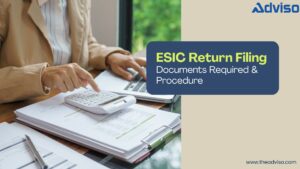Whether you are just starting or leaping into the corporate world as a newbie with a limited budget and manpower, selecting a sole proprietorship as a business model is an apparent choice. Sole Proprietorship Registration in the USA empowers individuals to have 100% control over their business operation and management. This registration ensures that the individual stays the rightful owner of his business and has the utmost control of every facet.
However, Sole Proprietorship Registration fails to reinforce a legal distinction between an owner and a business, creating a breeding ground for unlimited liabilities. When compared to other business models, registering a sole proprietorship is relatively straightforward. With that being said, let’s dive into the legalities that constitute this business model along with the registration process.
Sole Proprietorship Registration in the USA: A 5 Steps Guide
Securing a sole proprietorship registration in the USA requires abiding by different legal requirements, leading to the lawful establishment of a business. The key steps for obtaining this registration are as follows:
Step 1. Decide on a Business Name
Selecting a resonating business name is important from a growth standpoint. Take time to weigh different options when it comes to name selection. A trade name is technically referred to as DBA i.e. Doing Business As.
A carefully crafted name can create an immediate impact on your audience and let them quickly recognize what you do and what you offer. By default, your legal name shall serve as a business name.
Step 2. Register Your Business DBA Name
If you wish to go along with a trade name, you must register the DBA name. Make sure that the selected name should be unique and non-offensive.
Those using their names as a trade name would not require any special permit except a Social Security number for tax purposes.
The way to file a DBA can vary state-wise and county-wise. Depending on the jurisdiction, the application filing for DBA may occur at either the state or local level. Check with the state’s secretary or country clerk’s office to determine your business location.
Note: Some states require publishing DBA in a local newspaper to invite objections, if any.
Step 3. Apply For An EIN
After you file for a DBA, the next step is to file an online application on the IRS portal concerning the employer identification number (EIN), which entails a unique code akin to a social security number.
The EIN helps companies with tax-related errands, from tax filing to return submission. Securing EIN is mandatory for employers leveraging any number of manpower to uphold their operation.
Step 4. Obtain Business Licenses and Permits
The licensing requirements can vary significantly industry-wise. Depending on which industry you serve, you may need to secure one or more operational licenses in addition to the establishment registration.
For example, if you run an outlet to sell cigarettes and cigars, you may need to secure a tobacco license. Likewise, businesses dealing with the trading of alcoholic beverages need to obtain an alcohol license.
Additionally, businesses with commercial outlets offering tangible goods may need a general business license, along with a seller’s permit since they fall under the sales tax regime.
You can get in touch with your city and county administrative offices to avail of more information on the same. The sales tax enables the sellers to collect tax against goods sold to the customers. It is granted by the state.
Relevance of Business Insurance and Corporate Bank Account when going for sole proprietorship registration in the USA
Being a sole proprietor is certainly advantageous from a legal standpoint, but there are some downsides that you must be aware of.
A sole proprietorship is not as stable as other legal structures such as partnership firms and private limited entities. It does not uphold the notion of perpetual existence and attracts unlimited liabilities. In the worst-case scenario, these downsides can even lead to unexpected closure of your business. That is where business insurance comes into play. It not only fends off such events by rendering protection against out-of-pocket expenses and liabilities that incur in terms of property damage and expensive lawsuits.
Bank account opening for a business is as important as availing of insurance. A separate bank account will reinforce transparency in your corporate transactions, ensuring nil ambiguity while handling cash flow. Also, tax filing will become incredibly seamless and hassle-free.
A business account enables the influx of payment coming via different sources such as credit cards and online banking. In short, having a bank account can be a differentiating factor in how effectively you manage your cash flow and avail of credit as and when required.
Bottom Line
Securing a sole proprietorship registration in the USA is an inevitable choice for many startups and emerging entrepreneurs with a low to moderate market footprint. Undeniably, a sole proprietorship business model adheres to many benefits but one must not forget the downsides it brings.




